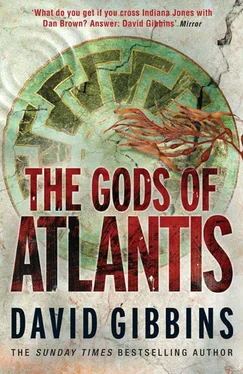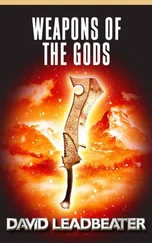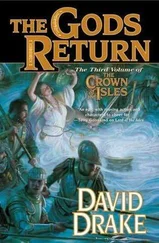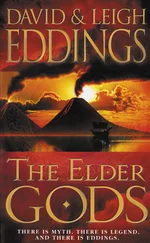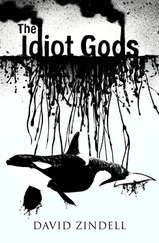David Gibbins - The Gods of Atlantis
Здесь есть возможность читать онлайн «David Gibbins - The Gods of Atlantis» весь текст электронной книги совершенно бесплатно (целиком полную версию без сокращений). В некоторых случаях можно слушать аудио, скачать через торрент в формате fb2 и присутствует краткое содержание. Жанр: Прочие приключения, на английском языке. Описание произведения, (предисловие) а так же отзывы посетителей доступны на портале библиотеки ЛибКат.
- Название:The Gods of Atlantis
- Автор:
- Жанр:
- Год:неизвестен
- ISBN:нет данных
- Рейтинг книги:3 / 5. Голосов: 1
-
Избранное:Добавить в избранное
- Отзывы:
-
Ваша оценка:
- 60
- 1
- 2
- 3
- 4
- 5
The Gods of Atlantis: краткое содержание, описание и аннотация
Предлагаем к чтению аннотацию, описание, краткое содержание или предисловие (зависит от того, что написал сам автор книги «The Gods of Atlantis»). Если вы не нашли необходимую информацию о книге — напишите в комментариях, мы постараемся отыскать её.
The Gods of Atlantis — читать онлайн бесплатно полную книгу (весь текст) целиком
Ниже представлен текст книги, разбитый по страницам. Система сохранения места последней прочитанной страницы, позволяет с удобством читать онлайн бесплатно книгу «The Gods of Atlantis», без необходимости каждый раз заново искать на чём Вы остановились. Поставьте закладку, и сможете в любой момент перейти на страницу, на которой закончили чтение.
Интервал:
Закладка:
Jeremy shut the book and pocketed it. ‘I think it’s another way of understanding what we’re looking at in early prehistory. For too long archaeologists have assumed that ancient belief systems are somehow beyond their reach. Many early archaeologists were dogmatic about their Christianity, and shamanistic religion was regarded as the least accessible of all, a primitive, ill-formed system of spiritualism that existed before God revealed himself. But I’d argue that’s precisely where we need to go if we are to understand the origins of religion today, to look at neuropsychology. And most fascinatingly, what Coleridge was describing shows how that experience could have been intense and rapturous without the worship of gods.’
‘It’s not just in modern poetry,’ Jack said thoughtfully. ‘You get the same kind of imagery in the earliest literature of all, in the Babylonian Epic of Gilgamesh, where long voyages are taken over water and there’s that same juxtaposition of the world of nature and the world of men. And the Epic of Gilgamesh may preserve an actual memory of the spiritualist world of the early Neolithic, a world just before the gods came into being.’
Lanowski got up, put the blackboard resolutely back on the chair and whipped out his piece of chalk. He drew a spiral on one side of the board, then turned back to them, his eyes gleaming. ‘Here you see the vision of a tunnel, a vortex. It’s the most common altered consciousness vision, and also the most common early Neolithic symbol. You find it everywhere, from the megalithic tombs of Ireland to Atlantis. The vortex can be surrounded by animal images, like Jack’s image of Costas repeatedly on the edge of his vision, but here it’s empty. You could call it a vision of pure rapture. But then something changes.’ He flourished the chalk, then drew two circles beside the first, the same size but without the spiral. ‘Think of Stonehenge. Think of the Neolithic temples. They’re circles. But what do they have inside them?’ He slashed a T shape and a pi shape on the top of the board. ‘What you’ve got, gentlemen, is gods. That’s what the trilithons at Stonehenge are. That’s what the T-shaped pillars of Gobekli Tepe and Atlantis are. And how do you depict this new type of temple, this new religion, as a symbol?’ He put the chalk in the centre of the second circle and drew a series of straight lines radiating out, turning each line sharply to the left. He swivelled back to them, his arms held out questioningly.
‘The Sonnenrad,’ Jack said quietly. ‘The ancient sun symbol, used by the Nazis as the SS symbol.’
Lanowski flourished the chalk. ‘The old vortex, hijacked. Now you see not a swirl, but the walls of the tunnel lined with these images of gods.’
‘And there’s another ancient symbol,’ Jack said quietly.
Lanowski turned and drew inside the third circle, this time only four lines intersecting, the ends turned left. Jack stared at it. The swastika. But now he saw it not as a cross at all, but as a symbol of the ascendancy of the gods; the gods who had taken over the old religion ten thousand years ago. And a horrifying modern symbol, a symbol of gods reborn, not in the depths of prehistory but in the cauldron of Europe eighty years ago.
Lanowski tossed the chalk, pocketed it and marched back to his computer workstation. ‘Just a little more time, Jack. Then I’ve got something more to show you.’
Jack looked to the ROV screen, which was still blank, and Jeremy glanced at the monitor where he had left his program loading. ‘Okay,’ Jeremy exclaimed. ‘We’re in business. This is going to completely change your view of Atlantis.’
Jack and Costas followed Jeremy, who sat down in front of the monitor and glanced at Jack. ‘As soon as you surfaced from the dive, Costas emailed me the photos from your helmet camera, the ones you’ve already seen as raw images. The beauty of that camera pod is that it incorporates a miniature thermal-imaging device and GPR, ground-penetrating radar, allowing us to see beyond the visuals. It’s going to revolutionize underwater archaeology, because it’ll enable nearly instant transfer of the processed images into the diver’s helmet monitor, allowing a kind of X-ray vision. A few glitches, but Costas and I are nearly there. Meanwhile, look at this. What you’ll see is what Jack actually saw when he poked his head into that chamber, minus the reflections from his headlamp off suspended particles, which I’ve removed.’ He clicked the mouse, and an extraordinary image came on the screen, taking Jack back to that heart-pounding moment in the depths of the volcano only a few hours before.
‘Holy shit,’ Costas murmured. ‘It’s like a charnel house. Like something out of an Aztec nightmare.’
It was the image of the human skull Jack had been looking at before Jeremy and Lanowski arrived, visible in sharper detail so that they could clearly see the finger marks of the ancient sculptor in the plaster that had been formed over the bone. But behind it were rows of other skulls, far more than Jack had seen before. Jeremy opened up a toolbar and sharpened the contrast. ‘I count at least twenty-five. About half are deliberately plastered like these ones, and the rest only look as if they are because they’re covered in calcite precipitate that formed over them after they were submerged. The anoxic environment of the Black Sea accounts for the amazing preservation. Our osteologist at Troy thinks the plastered skulls are mostly older people, men and women who may have lived a full lifespan and died naturally, some of them very old. They’re perhaps the skulls of venerated elders. But the other skulls are widely varied, adults of different ages, teenagers, children. The plastered skulls are all upright in the floor, set in a layer of burnt lime. The other skulls are scattered around as if whatever ritual was happening here was abandoned partway through, as the flood waters were rising.’
Jack stared at the image that had been inches away from him underwater, seeing how the plaster had been moulded to form high cheekbones and bedding in the sockets for cowrie-shell eyes. He could see how the plastered skulls had been carefully sunk up to chin level in the lime floor. He remembered the most striking images from the Neolithic town of Catalhoyuk, of bulls’ skulls embedded in house walls, almost as if they were caught at the moment of coming through. In the cave paintings of the Palaeolithic the animals seemed to be emerging from the walls, sometimes floating in front of them, alongside haunting imprints of human hands; the plastered skulls here seemed the same, as if they represented bodies emerging from a chthonic spirit world, emissaries between the world of the living and the world of the dead.
Costas tapped Jack’s shoulder. ‘You said plastered skulls like this had been found at other sites?’
‘At early Neolithic Jericho in Palestine,’ Jeremy interjected. ‘I was researching it on the way here. A famous skull found by Dame Kathleen Kenyon in her excavations in the 1950s.’
‘And at Catalhoyuk,’ Jack added. ‘They’re usually interpreted as evidence for a cult of the dead, for ancestor worship. But I worry about that. Worship is the wrong word, a modern word with misleading connotations. To me, this image from Atlantis suggests that they should be seen in the same way as the bulls and the other animals, as travellers between our world and a spirit world, a world entered through the rock of the volcano, through caves, through house walls. Maybe the ancestors could do this if their remains were properly treated. They were venerated, just as elders would have been when they were alive, but I don’t think they were worshipped. I don’t think the ancestors were seen as gods: that’s an idea I don’t see any clear evidence for in prehistoric hunter-gatherer societies.’
Читать дальшеИнтервал:
Закладка:
Похожие книги на «The Gods of Atlantis»
Представляем Вашему вниманию похожие книги на «The Gods of Atlantis» списком для выбора. Мы отобрали схожую по названию и смыслу литературу в надежде предоставить читателям больше вариантов отыскать новые, интересные, ещё непрочитанные произведения.
Обсуждение, отзывы о книге «The Gods of Atlantis» и просто собственные мнения читателей. Оставьте ваши комментарии, напишите, что Вы думаете о произведении, его смысле или главных героях. Укажите что конкретно понравилось, а что нет, и почему Вы так считаете.
